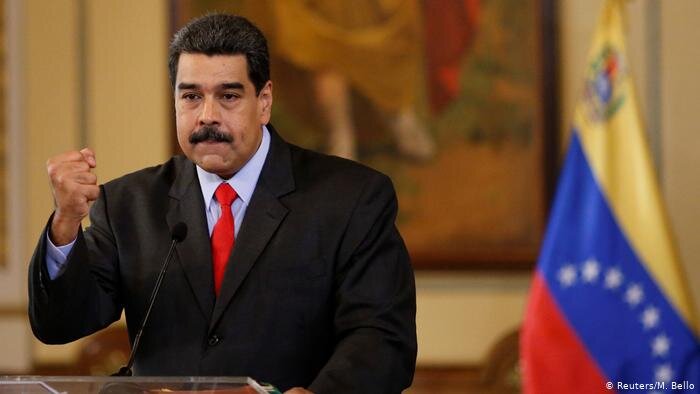Venezuela’s Maduro, opposition launch crunch talks

Representatives of Venezuelan President Nicolas Maduro and the U.S.-backed opposition are holding crucial talks in Mexico City. The negotiations are aimed at ending political and economic problems.
The heads of both delegations met on Friday night, after six months of talks brokered by Norway, to sign a memorandum of understanding containing the details of the agenda.
It’s not the first time that the opposition has sought a deal with President Maduro, however this time opposition leader, Juan Guaido, is losing popularity among his own supporters in the South American country.
Despite that, the opposition delegation is vying for some power in the government.
Maduro will be represented by a delegation headed by parliament speaker Jorge Rodriguez. The opposition team will be led by the politician and lawyer Gerardo Blyde and include Guaido's foreign policy chief, Julio Borges, and other former lawmakers.
In quite significant change from past talks, more international players are set to be at the table this time.
Russia is joining Maduro’s camp while the Netherlands is helping the opposition. According to three people familiar with the sensitive nature of the talks who spoke on condition of anonymity; a broader group of about 10 other nations have been designated as key actors.
The Venezuelan government and issues such as sanctions, elections and political prisoners are expected to be discussed.
President Maduro has already warned he will not bow to "blackmail" by the United States.
Talks in the Dominican Republic in 2018 and Barbados the next year failed to resolve disputes.
In another sign of fading opposition powers, the parties will meet again on August 30 to discuss a seven-point agenda that does not include the departure of Maduro.
Some reports have emerged that a plan to sign an agreement could fall apart if the ambassador to Washington for opposition leader, Juan Guaido, remains on the opposition delegation.
Following the last Presidential election, the U.S. imposed a wide range of sanctions saying it did not recognize the vote. The sanctions have had a strong impart on ordinary people’s livelihoods.
The United States has called on Maduro, a strong critic of Washington’s interference in Latin America, to make serious efforts toward holding elections if he wants sanctions relief.
In a state television broadcast, Maduro said his country would go to the talks "autonomously and independently and does not submit to blackmail or threats from the United States government."
Maduro had earlier said he was seeking an "immediate lifting of all the criminal sanctions" led by the United States, which in 2019 said it no longer considered him the legitimate president of the country. Washington said it recognized Guaido as the the Venezuelan President; despite the opposition leader not participating in the elections.
Maduro never lost control of the country's institutions, in particular the armed forces. He accuses Washington of attempts to control Venezuela’s vast oil resources.
